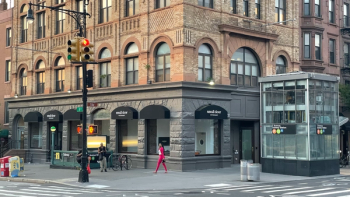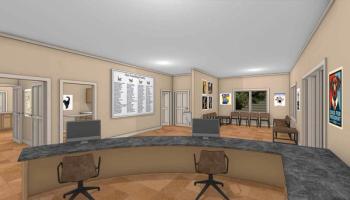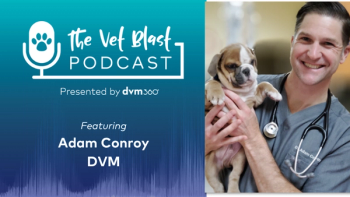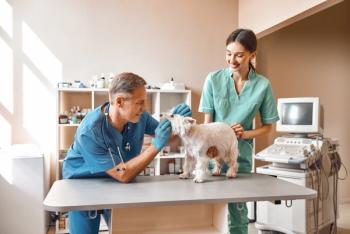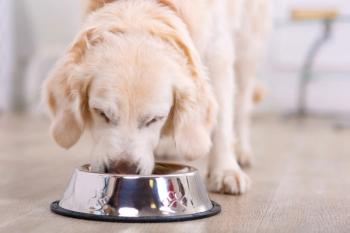
Stop the slip with flooring that grips
Veterinary architect Heather Lewis, AIA, NCARB, breaks down the best flooring for use in clinics.
When it comes to selecting the flooring for your veterinary hospital, some options provide better traction than others. Heather Lewis, AIA, NCARB, of Animal Arts in Boulder, Colorado knows. The ideal surface will have a "coefficient of friction," which can be found in the product specifications, of 0.6 or higher. But it's a fine balance, Lewis says, because if the texture's too rough, it'll be hard to clean; if it's too fine, then the floor will be slippery.
Concrete flooring, pictured here at McGregor Boulevard Veterinary Clinic in Fort Myers, Florida, has the potential to be slippery, depending on the finish used. | Photo courtesy of Stuart Gobey, Island Studio Photography
A nonslip floor is important, not only for staff, but also for patients who may find the slippery floor scary and for patients with reduced mobility who can't walk as easily.
Lately, the trend is toward luxury vinyl tile, or LVT (learn more about that
LVT sets the stage in the reception area at Pet Emergency Clinic & Referral Center in Spokane, Washington. | Photo courtesy of Tim Murphy, Murphy Foto Imagery
Below, Lewis shares the best and worst options for clinic flooring:
Product Slippery or nonslip Characteristics Price Concrete Slippery Polished or sealed concrete is slippery when wet, and because it's shiny, it looks wet all the time $1.50 to $7 per square foot; use a sealant for the lower price, polish for the higher price Cushioned vinyl Nonslip Nicer to the touch and easier to stand on for long periods of time than other tile; used a lot in human healthcare; doesn't need to be waxed $8 to $10 per square foot Epoxy Depends on finish Epoxy and resin-based floors are slippery if not treated properly; ask your contractor for a large-scale sample to try and walk on it before committing to a large area $8 to $13 per square foot Luxury vinyl tile Nonslip, availavle in tile or plank form Good coefficient of friction, but can't be used in surgery or wards because of hard-to-clean gaps $7 to $9 per square foot Recycled rubber Nonslip The only flooring with inherent sound reduction; good for dog play rooms with a sealer on top; easier to keep sanitary with a sealer on top $4 to $12 per square foot, based on quality and thickness Rubber Slippery when wet High coefficient of friction and nonslip, but only when it's dry $6 to $10 per square foot Safety vinyl Nonslip Made for nonslip safety and used in human hospitals and in service dog training facilities; often has same coefficient of friction when wet and dry $8 to $10 per square foot Tile Varies Look for tile with coefficient of friction of 0.6 or higher; watch it when it gets wet $10 to $15 per square foot Vinyl Depends on polish Vinyl can be slippery if it's highly polished $5 to $7 per square foot
Newsletter
From exam room tips to practice management insights, get trusted veterinary news delivered straight to your inbox—subscribe to dvm360.

